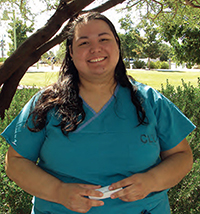 Why did you choose your specific health professional career?
Why did you choose your specific health professional career?
I chose surgery because I like how surgeons approach problems; it fit well with my methods of problem solving and it is a very practical, concrete way to deal with complex medical issues. I also like how the cross-sections of medicine are heavily incorporated into surgery. In addition to being the surgeon, I have to understand internal medicine, radiology, pediatrics, anesthesiology, and critical care, just to name a few. It’s also very satisfying to have an immediate sense of accomplishment, and I love being able to use my technical expertise to help people. When things go as planned, my patients come to me sick, and I send them away better. I never get over just how cool that really is.
What experiences did you have to make sure this profession was right for you?
When I was a senior in high school, I took a job as a certified nurse’s aide at a nursing home. Although it was a difficult job on many levels, I needed the work and surprisingly, I found myself enjoying it more than I thought I would. In one enlightening experience, a family practice doctor was doing rounds on his patients admitted to the nursing home, and needed my help dressing a resident’s chronic leg wound. There was something about how he dealt with the problem that made me realize I wanted to work in this field; I wanted to become a doctor. I never looked at another profession seriously after this experience.
Describe any obstacles or barriers to success that you encountered along your health professional career path. How did you overcome them?
The biggest obstacle for me was getting used to the culture of the medical community. I am the first doctor in my family, so there was no one to help prepare me for the culture of medicine. I didn’t know what to expect. Many of my classmates were the children of doctors and scientists, or of an upper-class background; I was not. It didn’t help that I was Native American and a woman. There were very few Native physicians to act as mentors, and those who were around were not surgeons. Even though I had to do a lot on my own, everyone in medical school was very welcoming. In the end, all medical students are very similar; tired, overwhelmed and more than a little scared about what is expected of us. My classmates and I became one giant family.
What do you do in your current job?
Currently, I am a general surgery resident, which entails learning how to perform in both surgery and patient care. I am basically working like crazy to master my chosen specialty. In addition to taking care of my patients, I am also responsible for running a surgical service. I make sure my Attending physicians are fully informed about what is going on, assign operative cases, as well as teaching the junior residents. All the while, I try to absorb as much as possible from my teachers. It is very challenging, hard work, but worth it.
What advice do you have for American Indian/Alaska Native students who are interested in health careers?
Understand that it won’t always be easy for a lot of reasons. It’s hard for the non-Natives too. There will be setbacks and failures because we come from such different places than many of our classmates. Find the other Indians, even if it’s just an email or a phone call. We are out here, and we want to help you! It really helps to be able to talk about what it’s like to be the only Indian in the room sometimes.
What would you like to see for your tribe’s future?
I would like to see my tribe continue to take our future into our own hands. The influx of casino money has really opened some doors, but we still have a long road ahead.
Do you practice traditional medicine? If you do, then how does traditional medicine interact with conventional medicine?
No.

